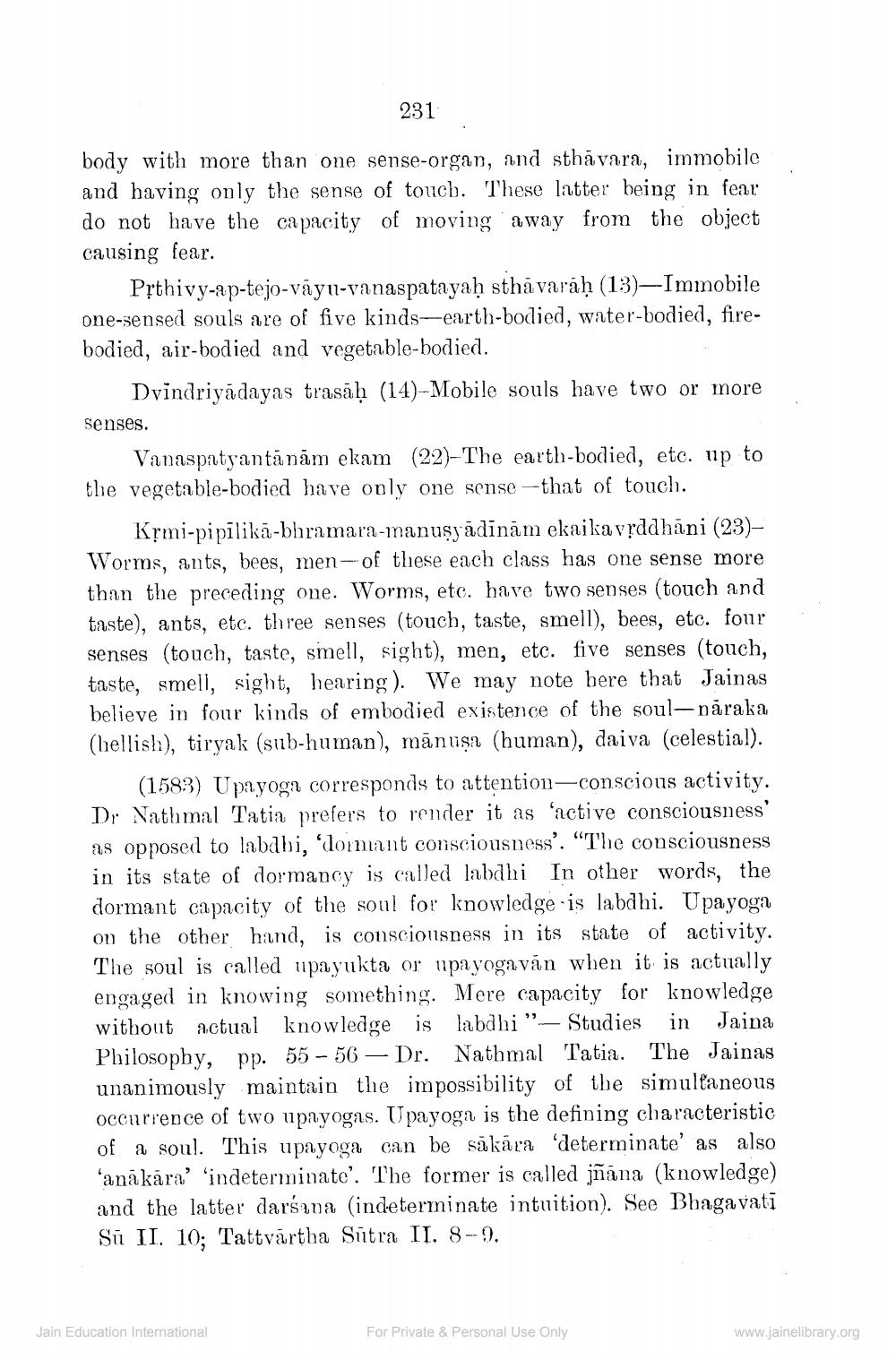________________
231
body with more than one sense-organ, and sthavara, immobile and having only the sense of touch. These latter being in fear do not have the capacity of moving away from the object causing fear.
Prthivy-ap-tejo-vayu-vanaspatayaḥ sthavaraḥ (13)-Immobile one-sensed souls are of five kinds-earth-bodied, water-bodied, firebodied, air-bodied and vegetable-bodied.
Dvindriyadayas trasaḥ (14)-Mobile souls have two or more
senses.
Vanaspatyantānām ekam (22)-The earth-bodied, etc. up to the vegetable-bodied have only one sense-that of touch.
Krmi-pipilika-bhramara-manusyādinām ekaikavṛddhani (23)Worms, ants, bees, men-of these each class has one sense more than the preceding one. Worms, etc. have two senses (touch and taste), ants, etc. three senses (touch, taste, smell), bees, etc. four senses (touch, taste, smell, sight), men, etc. five senses (touch, taste, smell, sight, hearing). We may note here that Jainas believe in four kinds of embodied existence of the soul-naraka (hellish), tiryak (sub-human), manusa (human), daiva (celestial).
(1583) Upayoga corresponds to attention-conscious activity. Dr Nathmal Tatia prefers to render it as 'active consciousness' as opposed to labdhi, 'dormant consciousness'. "The consciousness in its state of dormancy is called labdhi In other words, the dormant capacity of the soul for knowledge is labdhi. Upayoga on the other hand, is consciousness in its state of activity. The soul is called upayukta or upayogavan when it is actually engaged in knowing something. Mere capacity for knowledge without actual knowledge is labdhi"- Studies in Jaina Philosophy, pp. 55-56-Dr. Nathmal Tatia. The Jainas unanimously maintain the impossibility of the simultaneous occurrence of two upayogas. Upayoga is the defining characteristic of a soul. This upayoga can be sakara 'determinate' as also 'anakara' 'indeterminate'. The former is called jñana (knowledge) and the latter darsana (indeterminate intuition). See Bhagavati Su II. 10; Tattvärtha Sutra II. 8-9.
Jain Education International
For Private & Personal Use Only
www.jainelibrary.org




